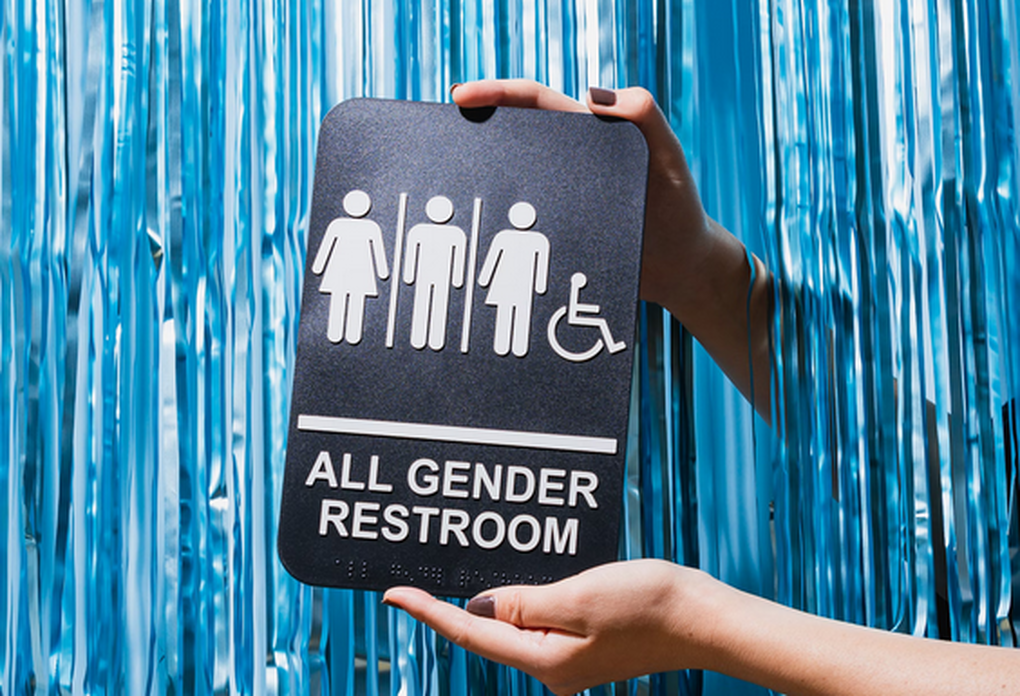Washington D.C. - The election of Delaware's Sarah McBride as the first transgender member of Congress has reignited a fiery debate over transgender bathroom rights within the hallowed halls of the U.S. Capitol. In a move that has divided Congress and captured national attention, Representative Nancy Mace (R-SC) has introduced legislation aiming to prohibit transgender women from using women's restrooms on Capitol Hill, citing privacy and safety concerns.
Legislative Action:
-
Mace's Bill: Rep. Mace's resolution seeks to amend House rules to bar transgender individuals from using bathrooms that align with their gender identity rather than their sex assigned at birth. This legislative effort has been framed as a measure to protect "women's spaces" in federal buildings.
-
Speaker's Stance: House Speaker Mike Johnson has issued a statement aligning with Mace's position, confirming that single-sex facilities in the Capitol will remain designated by biological sex, thereby affecting transgender individuals like McBride.
Public and Political Reactions:
-
Support: Those in favor, like Mace, argue that such measures are necessary to ensure privacy and safety, drawing on broader cultural and political narratives around gender identity.
-
Opposition: Critics, including Representative Alexandria Ocasio-Cortez (D-NY), have vehemently opposed the move, labeling it as discriminatory and a distraction from more pressing legislative issues. Ocasio-Cortez remarked, "Instead of addressing real issues like healthcare, housing, and education, we're manufacturing culture wars."
-
Public Discourse: The issue has also drawn commentary from public figures like J.K. Rowling, who, while not directly commenting on U.S. legislation, has been vocal on transgender rights issues, often sparking controversy with her views on gender and sex.
Social Media and Public Sentiment:
-
On platforms like X, the debate is polarized. Hashtags like #TransRightsAreHumanRights and #ProtectWomensSpaces trend, reflecting the deep divisions. Some users argue for inclusivity and equality, while others voice concerns over privacy and safety.
-
There's a consensus among some commentators that the focus on bathroom policies might overshadow more fundamental issues like equal rights and protection from discrimination.
Broader Implications:
-
Legal and Ethical Debate: This legislation and the surrounding discourse touch on broader legal debates over how transgender rights are to be recognized under federal law, especially concerning facilities like restrooms.
-
Workplace Environment: The policy has implications for all transgender employees and visitors at the Capitol, potentially affecting their sense of safety and inclusion in the workplace.
-
Political Strategy: Some political analysts view this as a strategic move by Republicans to tap into cultural conservatism, potentially to galvanize their base ahead of future elections.
As Congress prepares for the swearing-in of new members, including McBride, the resolution introduced by Mace could set a precedent for how transgender issues are approached at the federal level. The debate encapsulates not just the immediate concern of bathroom access but also reflects ongoing national conversations about transgender rights, privacy, and the balance between individual freedoms and communal norms.
This issue remains contentious, with many advocating for more neutral, gender-inclusive facilities as a potential resolution to the privacy and safety concerns raised by both sides of the debate. As the new Congress convenes, all eyes will be on how these discussions unfold and what they signify for the future of transgender rights in America.
